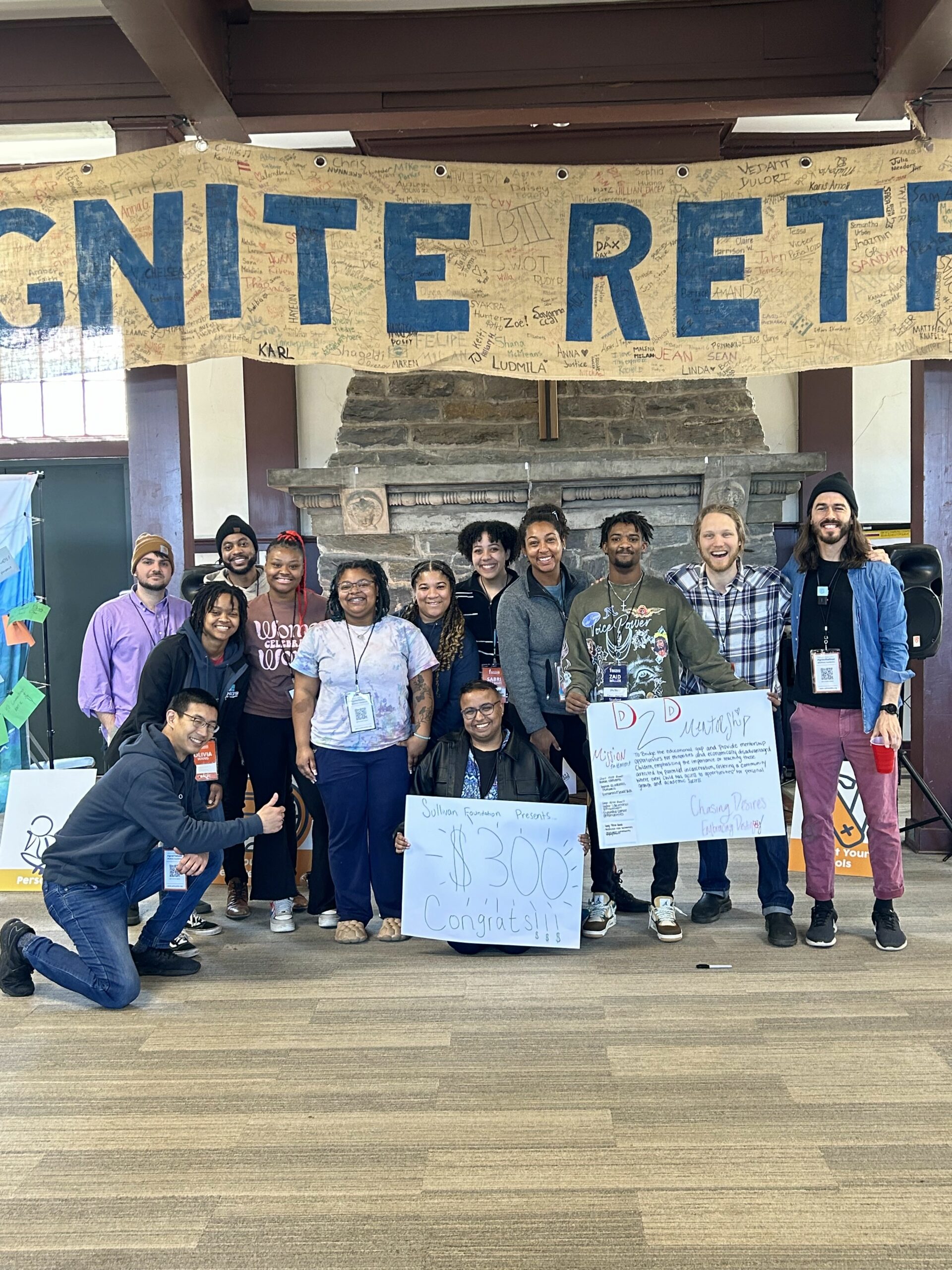In a recent interview with Kevin Seddon, Josh Nadzam, the Student Support Director at the Algernon Sydney Sullivan Foundation, shared insights into the Foundation’s Pitch Competition and its evolving mentoring program. The discussion highlighted the Foundation’s efforts to foster social entrepreneurship among students and the strategic steps being taken to support their innovative ideas.
Introduction to the Pitch Competition
The Sullivan Foundation hosts Ignite Retreats twice a year, designed to introduce students to themes and fields of social impact. At the culmination of these retreats, students are invited to participate in a pitch competition where they present their social impact ideas to their peers and the Sullivan team. Nadzam explained that the competition is open to any student who wishes to pitch an idea, with around 10 to 15 students typically participating.
“The students set up their booths and present their pitches to others,” Nadzam said. “We then distribute marbles to everyone, which they use to vote for their favorite ideas by placing them in the corresponding cups. The top ideas receive small cash prizes to help them get started.”
Prizes range from $300 for the first place, $200 for the second place, and $100 for the third place, with additional recognition given to two “Coaches’ Choices.” These selections are made by Sullivan Foundation coaches who see potential in ideas that may not have garnered the most votes but show promise.
The Purpose and Impact of the Pitch Competition
The primary purpose of the pitch competition is to encourage students to take their innovative ideas seriously and provide them with initial seed money to test their concepts. Nadzam emphasized the importance of this initial support, noting that it is not only a financial boost but also a validation of the students’ efforts and creativity.
“The money we give is a small amount, but it’s a gesture that says, ‘Your idea is valuable, and we believe in you,’” Nadzam stated. “In the world of social impact, getting initial funding can be challenging, especially for small-scale ideas. This seed money helps students to take the first step.”
Follow-Up and Mentoring
Following the competition, the Sullivan Foundation actively follows up with the winners to check on their progress. Nadzam explained that this ongoing support is crucial for helping students navigate the early stages of their projects.
“About a month after the competition, I reach out to the winners to see how they’re doing and what they might need,” Nadzam said. “We’re moving towards implementing a coaching package that offers winners additional support. This could include connecting them with alumni or professionals who can provide guidance in areas like fundraising, marketing, or strategic planning.”
Building a Network of Mentors
One of the key initiatives underway is the development of a robust network of mentors from the Sullivan Foundation’s alumni and broader community. Courtney, a member of the F
Foundation’s team, is spearheading this effort to catalog the skills and expertise of alumni willing to offer their time and knowledge.
“Our goal is to create a database of mentors with diverse skills who can be matched with students based on their needs,” Nadzam explained. “For example, if a student needs help with graphic design, we can connect them with an alum who has expertise in that area.”
This mentorship program is designed to be flexible and accessible, allowing students to receive the guidance they need without feeling overwhelmed. The idea is to provide a balance of support that empowers students to take their projects as far as they want to go.
The Role of Alumni and Professional Consultants
The mentoring program leverages the experience and knowledge of alumni who have navigated similar challenges. Nadzam noted that many alumni are eager to give back and support the next generation of social entrepreneurs.
“We’ve had great feedback from alumni who are excited about this initiative,” Nadzam said. “They see it as a way to stay connected and contribute to the Foundation’s mission. These are people who have built successful careers and are now in a position to help students avoid some of the pitfalls they encountered.”
Future Goals and Expansion
Looking ahead, the Sullivan Foundation aims to formalize and expand this mentoring program. Nadzam hopes to have a fully functional database of mentors and mentees by the end of the year, with clearly defined processes for matching students with the right advisors.
“Our hope is to have a comprehensive list of students and their needs, as well as alumni and their skills,” Nadzam explained. “We want to be able to facilitate connections that are meaningful and impactful.”
Additionally, Nadzam envisions the possibility of scaling the program to include more structured coaching packages, where students can receive a set number of hours of professional consulting in areas critical to their project’s success.
The Sullivan Foundation’s Pitch Competition and evolving mentoring program are crucial components of its mission to foster social entrepreneurship among college students. By providing initial funding, ongoing support, and connecting students with experienced mentors, the Foundation is helping to turn innovative ideas into real-world solutions.
Nadzam’s insights highlight the importance of this work and the potential for significant social impact. As the Foundation continues to build its network and refine its programs, it remains committed to empowering students to become effective change-makers in their communities.
Back to all News items.


